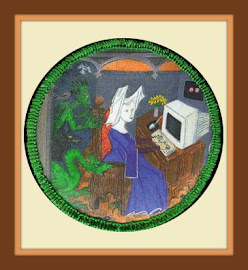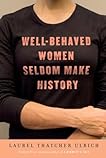Today, I read the first essay in Sisters in Spirit. It was so so awesome and made me so happy. It was an analysis of Eve and the story of the Garden of Eve and the fall. I have been fascinated with Eve for a long time, for many reasons, but one of these is that for me, she is an example of a woman in scripture whom I really like, and in some ways, she stands in as a substitute for Mother in Heaven, since we know so little about her. Anyway, the author, Jolene Edmunds Rockwood, had some amazing insights.
She begins the essay by looking at the ways the story of Eve and the fall have been utilized to justify the subjugation of women, starting with Judaism and the written text of the Midrash and the Torah. For example, under Jewish tradition, women are honored as mothers, but must worship in separate quarters so as not to distract men, an allusion to Eve as temptress. Women and girls are not allowed to study Torah. She quotes: "let the words of the Torah be destroyed by fire than imparted to women." Because Eve was formed from Adam's rib, she "was a secondary creation and thus was subject to and inferior to Adam" and thus are not suited to study scripture.
She then discusses the Pauline epistles that use references to Eve and the Garden of Eden. By contextualizing Paul as a learned Jew, tutored under the hand of a great Jewish scholar and well-versed in the Midrash and Torah, the statements he makes about women (and which always manage to infuriate me) are contextualized. Rockwood claims that he is still relying on his Jewish learning in some of these statements. "Paul's advice on issues involving women was usually a mixture of Christian principles boldly sprinked with Jewish customs." She discusses several passages, including one from 1 Timothy 2. She explains that these verses are full of traditional Jewish interpretations. For example: "I suffer not a woman to teach, not to usurp authority over the man, but to be in silence. For Adam was first formed, then Eve. And Adam was not deceived, but the woman being deceived was in the transgression." Because Adam was created first, which grants him superiority, women should not attempt to teach men.
I have never really thought about how Paul's Jewish learning shaped his views on women. This rings true to me. In April, my book group discussed Chaim Potok and The Promise. The female characters were very flat and seemed unrealistic. The books were about men. About men studying Talmud, about men negotiating the secular and sacred divide. The women, at least as portrayed by him, were very much on the sideline. According to Rockwood, this is a common Jewish tradition, that goes back to the early Jewish writings on Eve. Paul was shaped by that as part of his cultural beliefs. That is reflected in what he writes.
Friday, May 25, 2007
Paul and Eve
Labels:
Feminism,
Off the Stacks
Subscribe to:
Post Comments (Atom)












No comments:
Post a Comment